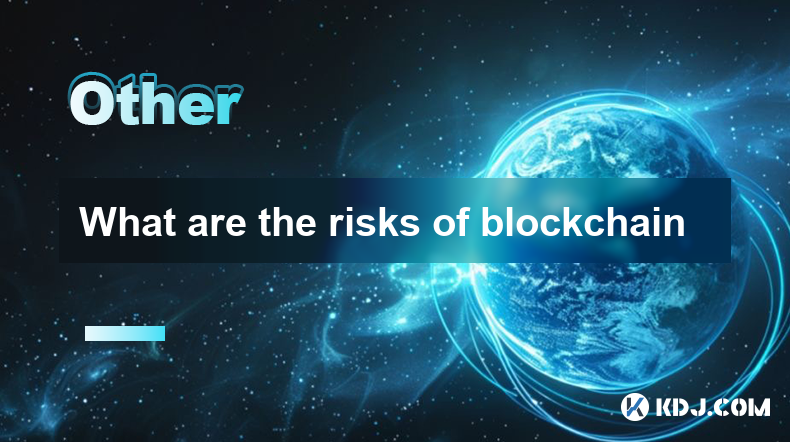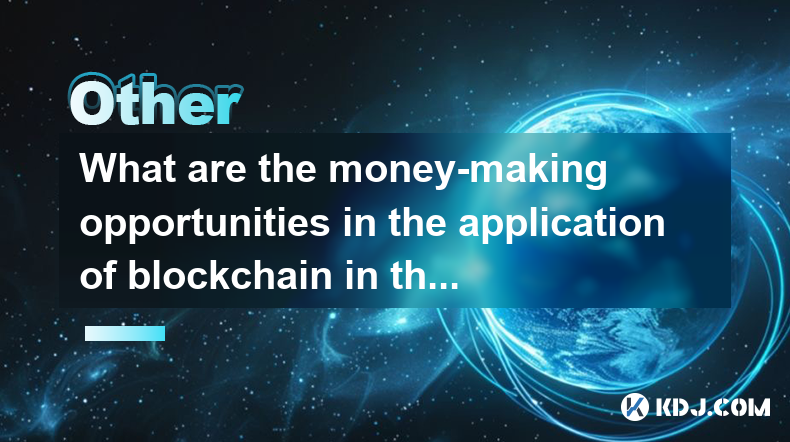-
 Bitcoin
Bitcoin $83,880.0364
2.80% -
 Ethereum
Ethereum $1,808.9871
2.05% -
 Tether USDt
Tether USDt $0.9996
-0.02% -
 XRP
XRP $2.1254
5.18% -
 BNB
BNB $597.0415
1.77% -
 Solana
Solana $121.8511
6.23% -
 USDC
USDC $0.9999
-0.02% -
 Dogecoin
Dogecoin $0.1711
8.55% -
 Cardano
Cardano $0.6607
4.73% -
 TRON
TRON $0.2400
1.83% -
 UNUS SED LEO
UNUS SED LEO $9.4688
0.77% -
 Chainlink
Chainlink $12.9117
3.28% -
 Toncoin
Toncoin $3.3769
-5.92% -
 Stellar
Stellar $0.2595
1.51% -
 Avalanche
Avalanche $18.0323
0.37% -
 Sui
Sui $2.2780
2.94% -
 Shiba Inu
Shiba Inu $0.0...01226
1.24% -
 Hedera
Hedera $0.1649
3.59% -
 Litecoin
Litecoin $84.3834
3.43% -
 Polkadot
Polkadot $4.0619
1.74% -
 MANTRA
MANTRA $6.2855
-1.22% -
 Bitcoin Cash
Bitcoin Cash $299.4248
1.74% -
 Bitget Token
Bitget Token $4.5468
1.98% -
 Dai
Dai $0.9999
-0.01% -
 Ethena USDe
Ethena USDe $0.9992
-0.02% -
 Monero
Monero $215.2689
2.79% -
 Hyperliquid
Hyperliquid $11.8405
4.32% -
 Uniswap
Uniswap $5.8764
3.23% -
 Pi
Pi $0.5380
-5.19% -
 Pepe
Pepe $0.0...07139
9.88%
What are the risks of blockchain
Blockchain adoption faces potential risks, including technological limitations, security vulnerabilities, uncertain regulations, operational challenges, and ethical concerns.
Feb 02, 2025 at 01:24 pm

Key Points of Blockchain Risks
- Technological Risks
- Security Risks
- Regulatory Risks
- Operational Risks
- Ethical Risks
What are the risks of blockchain?
Blockchain technology has the potential to revolutionize a wide range of industries, from finance to healthcare to supply chain management. However, it is important to be aware of the risks associated with blockchain before investing in or using blockchain-based applications.
Technological Risks
Blockchain technology is still in its early stages of development, and there are a number of technological risks that could impact its adoption and use. These risks include:
- Scalability: Blockchain networks can be slow and expensive to use, especially at scale. This could limit the adoption of blockchain for high-volume applications.
- Interoperability: There are a number of different blockchain platforms, and they are not all interoperable. This can make it difficult to develop and deploy blockchain-based applications that can work across multiple platforms.
- Security: Blockchain networks are not immune to security attacks. In fact, there have been a number of high-profile blockchain hacks in recent years. These attacks have resulted in the theft of millions of dollars worth of cryptocurrency.
Security Risks
Blockchain technology is often touted as being highly secure, but it is important to remember that no system is completely immune to attack. Some of the security risks associated with blockchain include:
- Private keys: Private keys are used to access and control blockchain wallets. If a private key is compromised, it could allow an attacker to steal the funds in the wallet.
- Smart contracts: Smart contracts are programs that run on the blockchain. They can be used to automate a variety of tasks, such as transferring funds or executing agreements. However, smart contracts can also be vulnerable to attack. An attacker could exploit a vulnerability in a smart contract to steal funds or disrupt the operation of the contract.
- Phishing: Phishing is a type of online fraud that involves tricking users into revealing their private keys or other sensitive information. Phishing attacks are often targeted at cryptocurrency users, and they can be very effective.
Regulatory Risks
The regulatory landscape for blockchain technology is still evolving. In some jurisdictions, blockchain technology is not regulated at all. In other jurisdictions, blockchain technology is regulated in a way that is unclear or burdensome. This regulatory uncertainty could create risks for businesses that are developing or using blockchain-based applications.
Operational Risks
Blockchain networks are complex systems, and they can be difficult to operate and maintain. Some of the operational risks associated with blockchain include:
- Downtime: Blockchain networks can be subject to downtime, which can disrupt the operation of blockchain-based applications.
- Errors: Human error can also lead to problems with blockchain networks. For example, an administrator could accidentally delete a key or deploy a buggy smart contract.
- Governance: Blockchain networks are typically governed by a decentralized community of users. This can make it difficult to reach consensus on important decisions, such as how to handle a network upgrade.
Ethical Risks
Blockchain technology can be used for a variety of purposes, both good and bad. Some of the ethical risks associated with blockchain include:
- Privacy: Blockchain networks are transparent, which means that all transactions are recorded on a public ledger. This can make it difficult for users to maintain their privacy.
- Discrimination: Blockchain technology could be used to create discriminatory systems. For example, a blockchain-based voting system could be designed to disenfranchise certain groups of voters.
- Surveillance: Blockchain technology could be used to create powerful surveillance systems. For example, a government could use a blockchain-based system to track the activities of its citizens.
FAQs
Q: What are the biggest risks associated with blockchain technology?
A: The biggest risks associated with blockchain technology include technological risks, security risks, regulatory risks, operational risks, and ethical risks.
Q: How can I protect myself from blockchain risks?
A: There are a number of things you can do to protect yourself from blockchain risks. These include:
- Using strong security practices, such as using a strong password and enabling two-factor authentication.
- Being aware of the risks associated with phishing attacks.
- Only investing in blockchain-based projects that you understand and trust.
Q: What is the future of blockchain technology?
A: The future of blockchain technology is bright. Blockchain technology has the potential to revolutionize a wide range of industries, from finance to healthcare to supply chain management. However, it is
Disclaimer:info@kdj.com
The information provided is not trading advice. kdj.com does not assume any responsibility for any investments made based on the information provided in this article. Cryptocurrencies are highly volatile and it is highly recommended that you invest with caution after thorough research!
If you believe that the content used on this website infringes your copyright, please contact us immediately (info@kdj.com) and we will delete it promptly.
- Justin Sun Accuses First Digital Trust of Insolvency, Triggering Severe Depeg of the FTUSD Stablecoin
- 2025-04-05 03:20:12
- The psychology of betting: how digital assets influence player behavior in 1win
- 2025-04-05 03:20:12
- Remittix Solves Real-World Problems and Provides an Actual Solution to Crypto Payments
- 2025-04-05 03:15:12
- The Crypto Market's 2025 Bull Run Is Here
- 2025-04-05 03:15:12
- If You're Hunting for the Best Meme Coin to Buy, Now's the Time to Look Beyond the Usual Suspects
- 2025-04-05 03:10:13
- PayPal Expands Crypto Services with Solana and Chainlink
- 2025-04-05 03:10:13
Related knowledge

Is the ranking of Chinese blockchain apps real and reliable?
Apr 04,2025 at 09:01pm
The ranking of Chinese blockchain apps has become a topic of interest for many in the cryptocurrency community, as it provides insights into the popularity and adoption of blockchain technology within China. However, the reliability and authenticity of these rankings are often questioned. This article aims to delve into the factors that influence these ...

What are the future development trends of blockchain game development?
Apr 03,2025 at 05:00am
Blockchain technology has revolutionized various industries, and gaming is no exception. As we look to the future, several trends are set to shape the development of blockchain games. These trends not only promise to enhance the gaming experience but also to integrate blockchain technology more seamlessly into the gaming ecosystem. Let's explore these t...

What are the maintenance costs of blockchain system development?
Apr 03,2025 at 06:07pm
The maintenance costs of blockchain system development are multifaceted and depend on various factors. These costs can include technical maintenance, security updates, infrastructure expenses, and personnel costs. Understanding these elements is crucial for anyone planning to develop or maintain a blockchain system. Technical MaintenanceTechnical mainte...

What are the money-making models of blockchain games?
Apr 04,2025 at 02:00pm
Blockchain games have emerged as a revolutionary way for players to earn real money while enjoying their favorite pastime. These games leverage the power of blockchain technology to create unique money-making models that benefit both the players and the developers. In this article, we will explore the various money-making models of blockchain games and ...

What are the money-making opportunities in the application of blockchain in the medical industry?
Apr 03,2025 at 03:35am
The integration of blockchain technology into the medical industry presents a myriad of money-making opportunities that can revolutionize healthcare systems. Blockchain's inherent characteristics, such as transparency, security, and immutability, make it an ideal solution for various medical applications. By leveraging blockchain, companies can develop ...

What are the money-making opportunities when blockchain and artificial intelligence are combined?
Apr 04,2025 at 01:28am
The convergence of blockchain and artificial intelligence (AI) presents a myriad of money-making opportunities within the cryptocurrency circle. This fusion leverages the decentralized and secure nature of blockchain with the analytical prowess of AI, creating innovative solutions and platforms that can generate significant revenue. From enhancing tradi...

Is the ranking of Chinese blockchain apps real and reliable?
Apr 04,2025 at 09:01pm
The ranking of Chinese blockchain apps has become a topic of interest for many in the cryptocurrency community, as it provides insights into the popularity and adoption of blockchain technology within China. However, the reliability and authenticity of these rankings are often questioned. This article aims to delve into the factors that influence these ...

What are the future development trends of blockchain game development?
Apr 03,2025 at 05:00am
Blockchain technology has revolutionized various industries, and gaming is no exception. As we look to the future, several trends are set to shape the development of blockchain games. These trends not only promise to enhance the gaming experience but also to integrate blockchain technology more seamlessly into the gaming ecosystem. Let's explore these t...

What are the maintenance costs of blockchain system development?
Apr 03,2025 at 06:07pm
The maintenance costs of blockchain system development are multifaceted and depend on various factors. These costs can include technical maintenance, security updates, infrastructure expenses, and personnel costs. Understanding these elements is crucial for anyone planning to develop or maintain a blockchain system. Technical MaintenanceTechnical mainte...

What are the money-making models of blockchain games?
Apr 04,2025 at 02:00pm
Blockchain games have emerged as a revolutionary way for players to earn real money while enjoying their favorite pastime. These games leverage the power of blockchain technology to create unique money-making models that benefit both the players and the developers. In this article, we will explore the various money-making models of blockchain games and ...

What are the money-making opportunities in the application of blockchain in the medical industry?
Apr 03,2025 at 03:35am
The integration of blockchain technology into the medical industry presents a myriad of money-making opportunities that can revolutionize healthcare systems. Blockchain's inherent characteristics, such as transparency, security, and immutability, make it an ideal solution for various medical applications. By leveraging blockchain, companies can develop ...

What are the money-making opportunities when blockchain and artificial intelligence are combined?
Apr 04,2025 at 01:28am
The convergence of blockchain and artificial intelligence (AI) presents a myriad of money-making opportunities within the cryptocurrency circle. This fusion leverages the decentralized and secure nature of blockchain with the analytical prowess of AI, creating innovative solutions and platforms that can generate significant revenue. From enhancing tradi...
See all articles





















































































